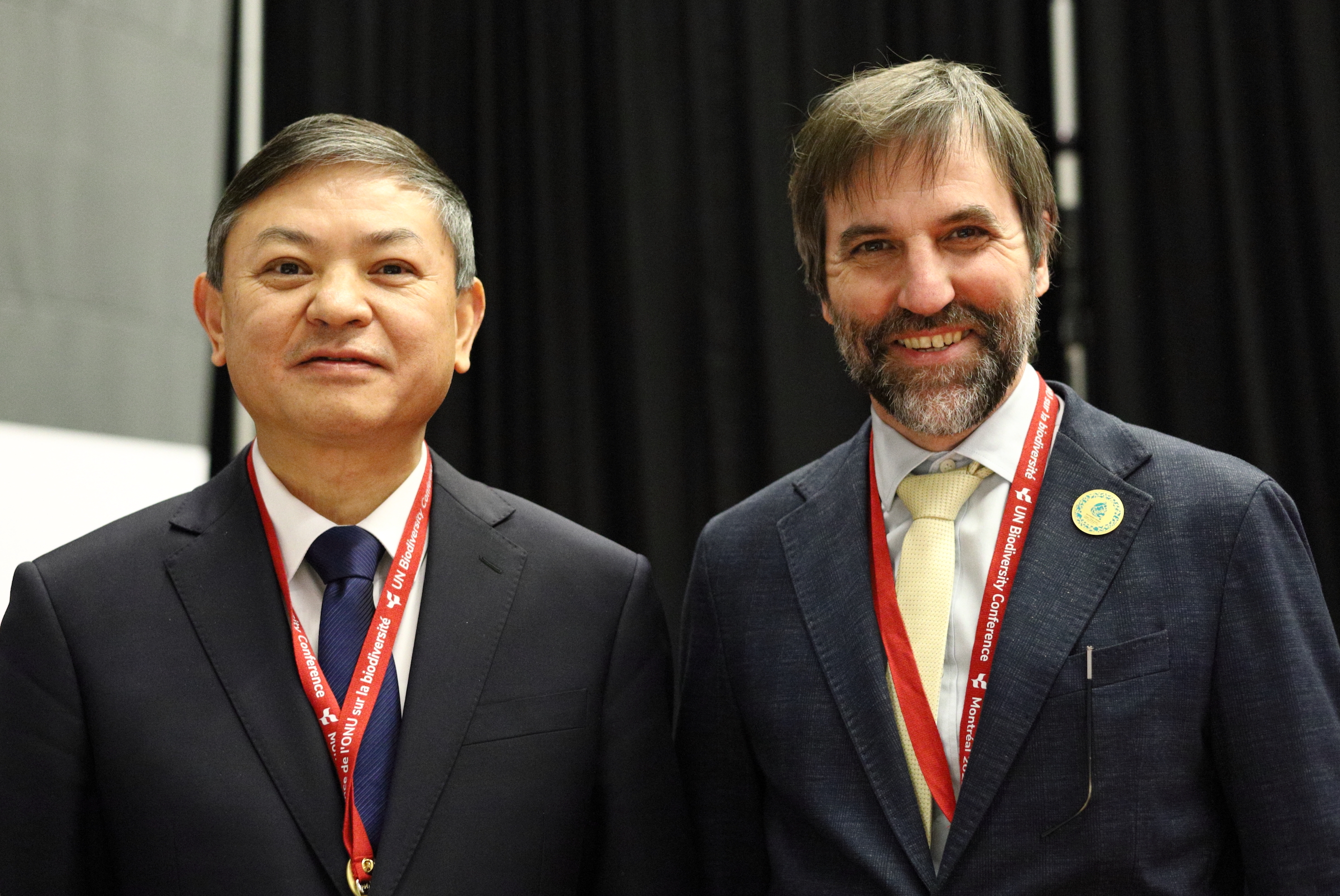Guilbeault says Conservatives are trying to mislead Canadians over China trip

As Conservatives mount political attacks against Environment and Climate Change Minister Steven Guilbeault over his upcoming trip to China, his office is accusing them of attempting to mislead Canadians.
Since news of the trip broke, Guilbeault, who has been a lightning rod for Conservative premiers in Canada looking to fight Ottawa over climate policy, has faced calls from the federal Conservative party to resign his position as executive vice-chair of the China Council.
“We recognize the need to meet with officials from large, powerful countries, even if we strongly disagree with those countries on issues such as human rights, but Canada’s leaders should not hold formal positions in groups run by foreign governments,” the Conservative Party of Canada said in a statement on its website. “Minister Guilbeault should immediately resign his position on Beijing’s CCICED and end all funding to this communist-led organization.”
Conservative Leader Pierre Poilievre took it a step further, calling it a “betrayal” on X (Twitter). Former Conservative leader Andrew Scheer took similar swipes on social media, as have other Conservative MPs, like Melissa Lantsman and Michael Barrett. In its statement, the Conservative party also criticizes Canada’s $16-million contribution to the China Council.
Guilbeault’s office called the statement from the Conservative party “highly misleading and ripe with hypocrisy.”
“Steven Harper's Conservative Government contributed roughly the same amount to this forum and former minister Peter Kent was an executive vice-chairperson on multiple occasions,” Guilbeault’s office said. “No funding is provided to the government of China.”
In 2014, Kent travelled to China in his capacity as the international executive vice-chair of the China Council, the same level role as Guilbeault. At the time, Kent said: “Canada is a key international partner in the China Council and has provided valuable leadership to help develop solutions to address environmental challenges that span across multiple borders throughout the world.”
From 1992 (when the China Council was formed) to 2022, Canada has provided roughly $42.5 million to the council (with another $8 million pledged between 2022 and 2026). In the years Harper was prime minister, his government committed $14.9 million, compared to $16 million committed under Prime Minister Justin Trudeau’s watch.
“As the Conservative party has repeatedly pointed out, China is a major contributor to global pollution,” Guilbeault told Canada’s National Observer in a statement. “When it comes to these massive global environmental challenges, to disengage would be a huge failure of diplomacy and irresponsible leadership.
“My trip there is all about helping to drive results on combatting climate change and protecting the environment, just as we did at COP15 in Montreal, where we helped broker a deal internationally to protect 30 per cent of global lands and seas across the world.”
As first reported by Canada’s National Observer, Guilbeault will visit Beijing from Aug. 26 to 31 for a meeting of the China Council for International Cooperation on Environment and Development (CCICED or China Council). The China Council is composed of Chinese and international experts mandated to recommend policy to the Chinese government.
Climate diplomacy experts widely agree the invitation to Guilbeault is a sign China is interested in strengthening the relationship built during last year’s UN biodiversity conference (COP15) chaired by China and hosted by Canada.
Given Conservative politicians have held the same role Guilbeault has and have contributed similar amounts of money to the China Council, a spokesperson for Guilbeault said the Conservative party is sensing “a partisan opportunity to attack.”
Other non-Chinese individuals on the China Council’s executive committee are UN Environment Program executive director Inger Anderson, former Norwegian deputy prime minister Kristin Halvorsen, and former Canadian commissioner of environment and sustainable development Scott Vaughan.
Former and current politicians from other countries including the Netherlands and Sweden, representatives from civil society organizations including the International Institute for Sustainable Development and World Wildlife Fund, and academics from Australia, Israel and Japan also serve as special advisers or council members.






Comments
Good one. Blatant hypocrisy along with the usual ultra-sophisticated con ploy of blaming Trudeau personally for absolutely everything (Justinflation?) like he's a dictator.
Also a reminder that Stephen Harper had at least some recognition of statesmanship but it's been downhill from there, and it was a relatively small hill. Poilievre couldn't even muster the courage to properly meet with Biden on his state visit here, so came off as some gauche backbencher.
And the whole Chinese interference thing, the latest con obsession? Clearly Republican interference is far more problematic when the Convoy Party of Canada is manifesting their playbook down to that convoy, albeit a pale imitation of the Jan. 6th insurrection which was more in keeping with that typical backbencher style.
This is a poor article, in that it fails to say what the China Council is and/or does. The reader, in all likelihood, has never heard of the China Council, so will be unable to determine if Canada participating is a good thing or not. The China Council for International Cooperation on Environment and Development is a high-profile international advisory body to the Chinese government. Through collaboration, it promotes global environmental sustainability by sharing environmental solutions and supporting Chinese efforts to manage environmental issues.